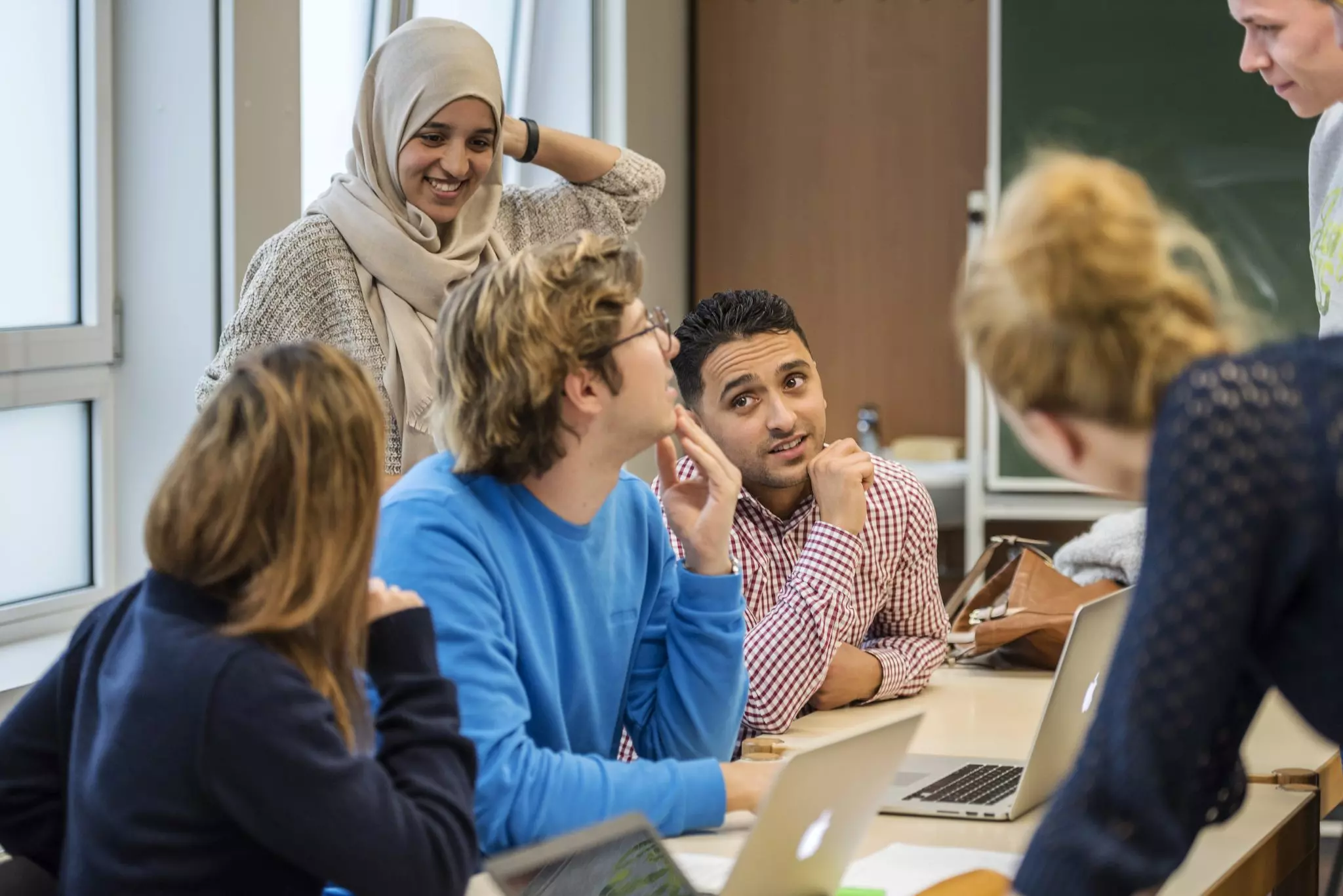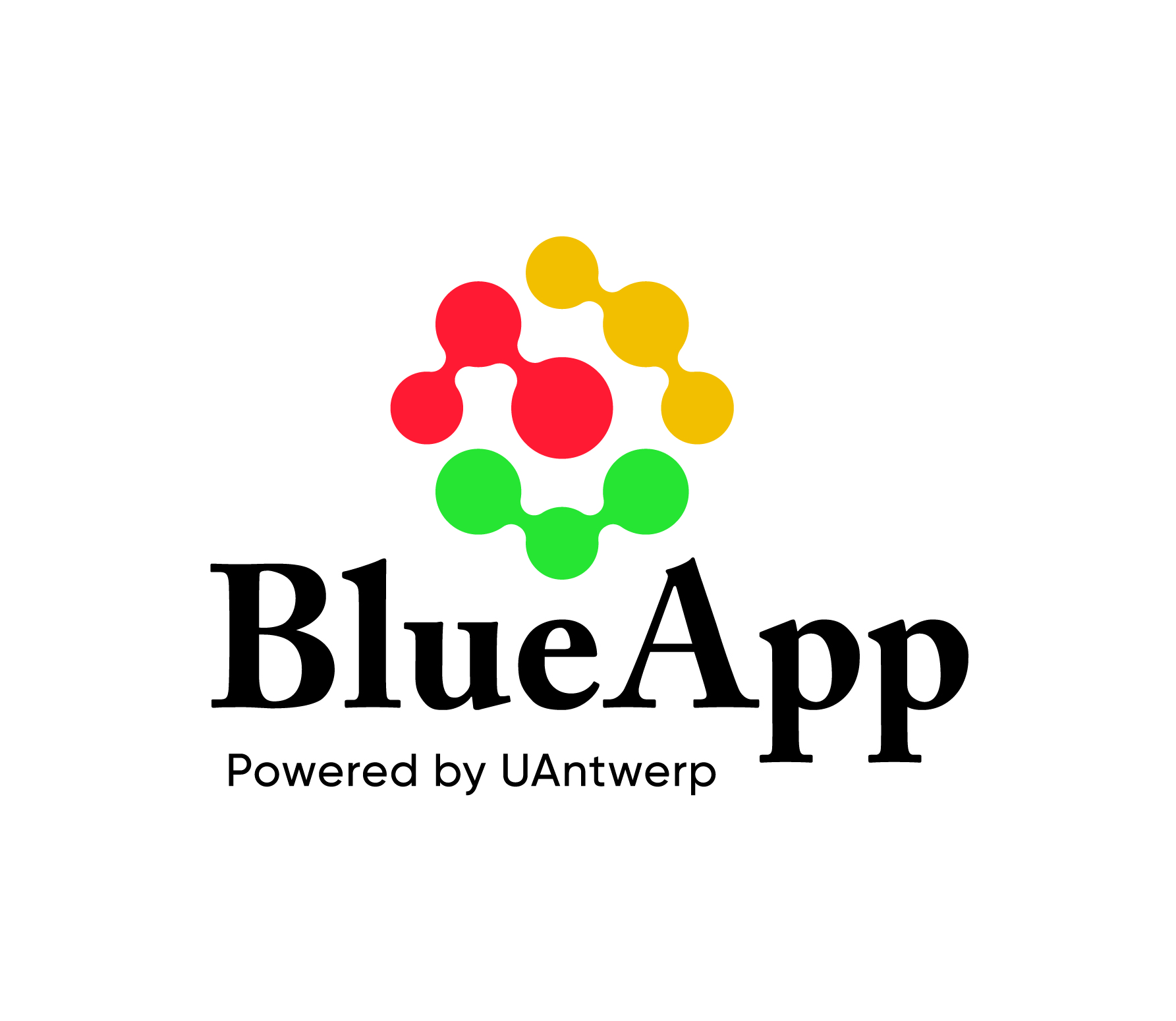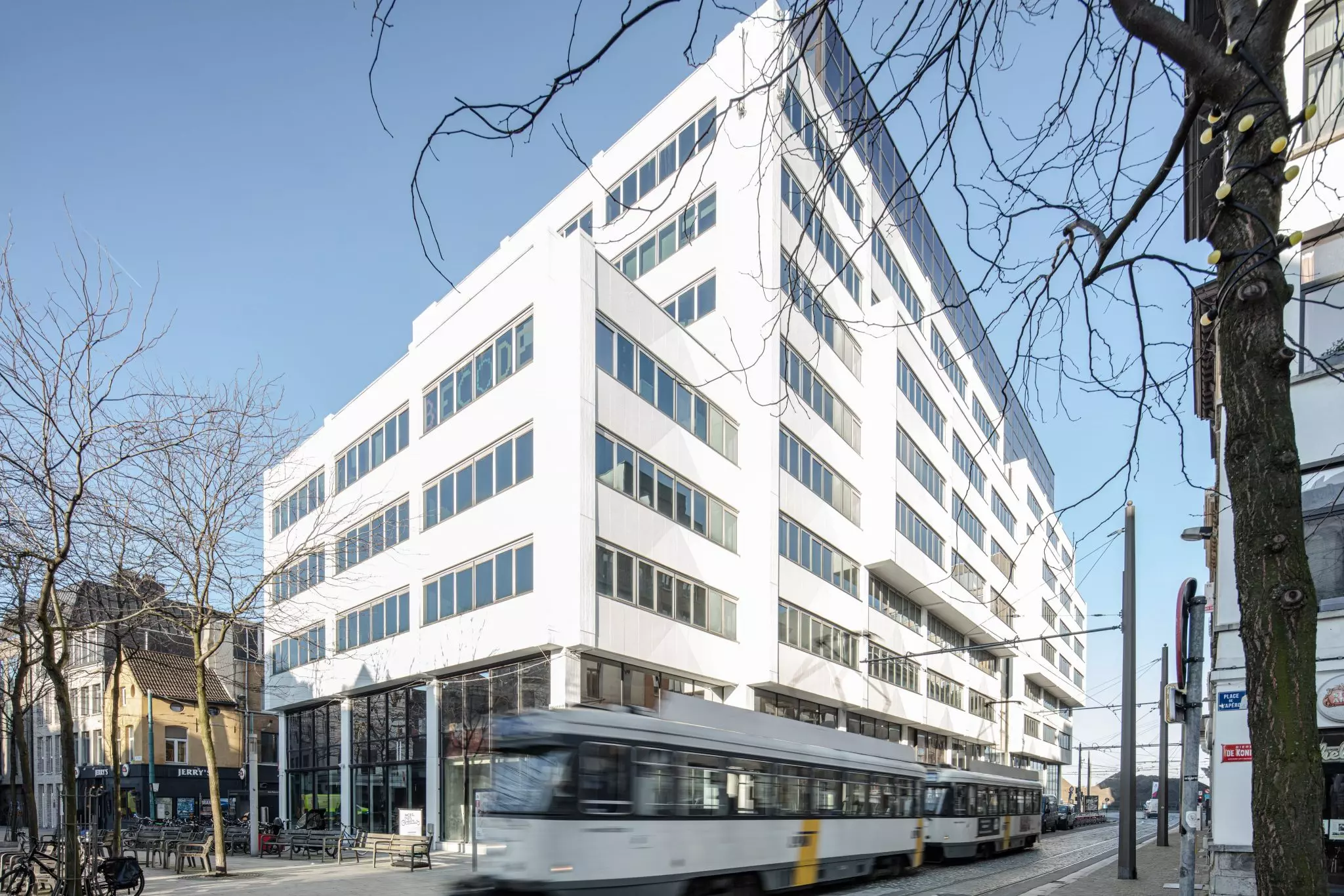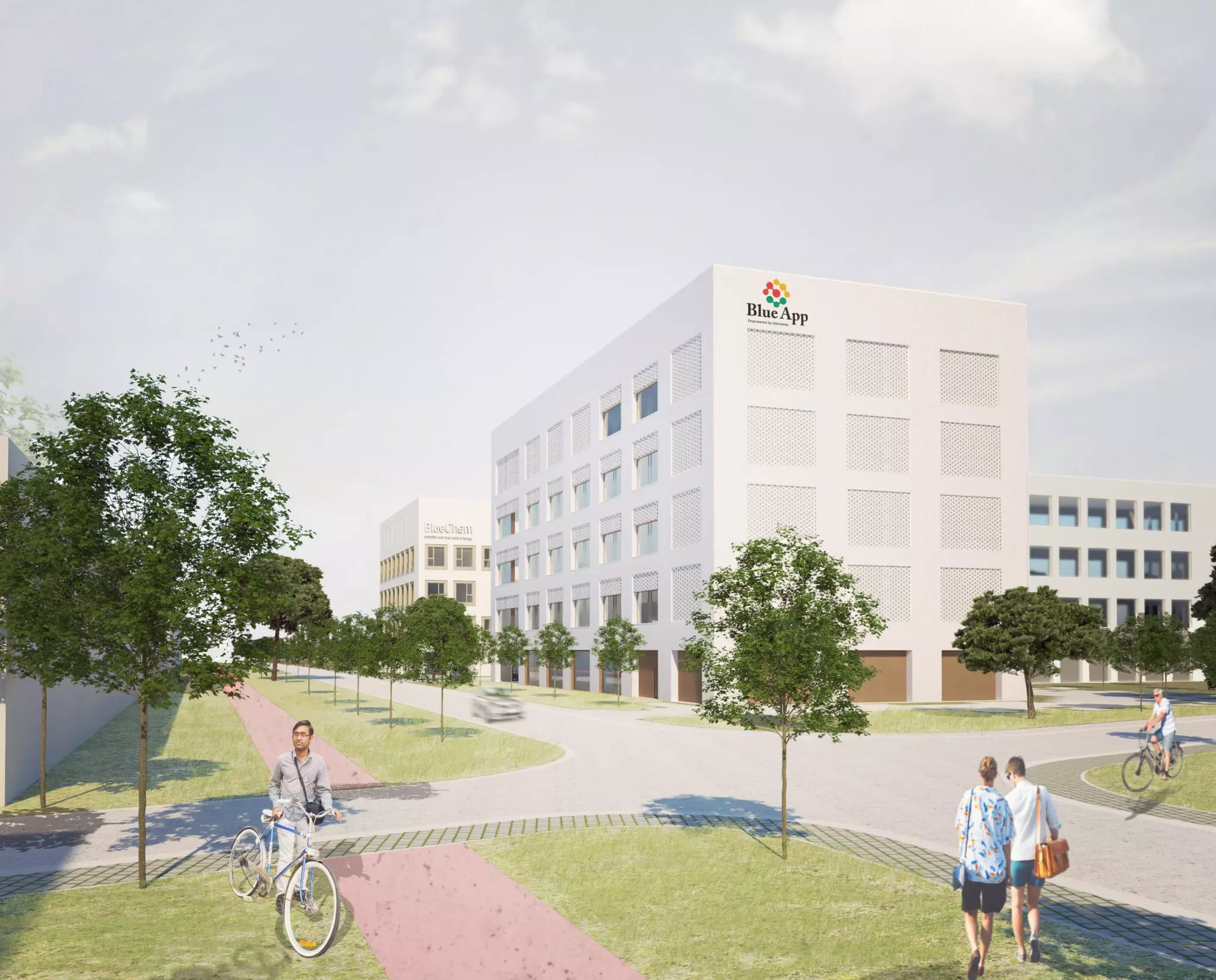The University of Antwerp as a driver in the innovation ecosystem
We live in a society facing global challenges for which appropriate solutions have to be found and complex problems need to be addressed in innovative ways. For many of today’s global societal challenges, research will be a crucial part of the solution. However, it is often not straightforward how this newly generated knowledge can be translated into addressing these societal challenges, and how new solutions should be deployed to generate the necessary impact. Clearly, the needs of a sustainable, smart and inclusive society call for a new approach for universities as drivers in the innovation ecosystem. As a driver, the University of Antwerp is highly responsive, adaptable and densely interlinked with external stakeholders, locally and globally.

The University of Antwerp combines responsiveness to current problems with the ability to engage in long-term research. The university addresses innovation challenges in networks that combine academic perspectives with innovation needs of businesses and public agencies. Such intertwined knowledge creation brings academic knowledge together with that of users, markets, social partners, citizens and governmental agencies, not only in research but also in education.
For a university to grow into a driver for innovation its role in the ecosystem is to be a critical, independent, evidence based provider of knowledge and technology to create value for society. On the one hand by responding to the specific needs of the innovation ecosystem in which the university is embedded; on the other hand by delivering well-trained people with the required knowledge and competences.
The University of Antwerp is aware of its role in the innovation ecosystem, namely to educate students that can create value in the organisations, economy and society they will join after graduation and that are able to tackle (societal) problems in an innovative way. We provide individuals with the willingness and ability to recognise and pursue opportunities for new value creation and problem solving in any organisational setting. This innovation ecosystem approach provides a unique cradle towards education and training of the professionals of the future. This includes the competency to continuously adapt, to cope with uncertainties, to be resilient and to conduct curiosity-driven and to search for solutions to new and unexpected challenges.
Lifelong learning is stimulated through combined online sessions and physical lectures that fit the needs and requirements of the specific innovation ecosystem. More talented people are attracted towards a career in science, focused on social and socio-economic impact. In order to recognise and celebrate its innovation talents the University of Antwerp hands out the Aha!Awards during the Antwerp Innovation Night.
Open innovation hubs: a physical dot connector
The reinforced quest for increased connectivity to fuel innovation dynamics calls upon the University of Antwerp to play a pivotal role as orchestrator in multidisciplinary and multiactor networks. The university is ideally placed and suited to “connect the dots” as it is impartial, driven by curiosity and long-term perspectives, rather than by commercial interests and short-term goals. This ecosystem approach breaks down the silo mentality through intense collaboration between researchers, businesspeople, entrepreneurs, investors, citizens and policy makers.
The University of Antwerp combines its own strengths with the specificities of Antwerp’s ecosystem to invest in specific domains.
The university excels in each of these three valorisation domains: sustainable chemistry and materials; infectious diseases and environmental health; metropolitanism, smart city, mobility and logistics. To fully harness the potential of innovation involving researchers, industry, entrepreneurs, governments and society at large, we must create the environment within which innovation can flourish. Therefore, the University of Antwerp has invested in pre-incubation structures in each of these domains: BlueApp, The Beacon and Vaccinopolis. In these focused domains, based on the regional characteristics and the local embedding of the University of Antwerp, joint goals are set in a public-private cooperation with respect for and recognition of each other’s individual strength, knowledge and competences.

BLUEAPP
BlueApp is a pre-incubator in the field of sustainable chemistry and materials. With BlueApp, UAntwerp aims to strengthen the conversion of knowledge and technology into innovation in collaboration with entrepreneurs and companies. BlueApp is a window on research into sustainability in the broad sense of the term at the University of Antwerp. In concrete terms, BlueApp provides a physical location where state-of-the-art infrastructure including analytical instruments and pilot facilities, technical personnel and expertise are brought together and offered to researchers, starting entrepreneurs and established companies. The focus domains are water research, reactors for sustainable (bio)chemical conversions and material characterisation. On the one hand, BlueApp wants to help entrepreneurs bring technology from the laboratory to an industrial environment, in an accelerated, cost-efficient and low-risk way.
On the other hand, BlueApp wants to propose solutions for the challenges around sustainable chemistry and circularity by putting together multidisciplinary teams. Education and training on aspects of sustainable chemistry are also part of the offering. Together with like-minded people from the industry and research world, as brought together in CAPTURE or BlueChem, among others, we accelerate the transition to more sustainability and build an innovation ecosystem around sustainable chemistry and materials.

VACCINOPOLIS
Vaccinopolis is a state-of-the-art facility for vaccine clinical trials, being built on the University of Antwerp’s Campus Drie Eiken. With the support of the federal government and under the leadership of Prof. Pierre Van Damme, this unique complex will consist out of a clinical trial center with a Controlled Human Infection Models (CHIM) unit comprising volunteer rooms following the highest safety standards and equipped with an ensuite bathroom, TV, bed and wardrobe to provide a comfortable space for volunteers during studies. Further, it provides laboratories, offices, consultation rooms and relaxation facilities. The Centre for Evaluation of Vaccination (CEV) vaccine trial team has a long-standing tradition in running national and international vaccine safety & immunogenicity trials (HBV, HPV, polio, influenza, Ross River, COVID-19…). In its 30 years history, the CEV has conducted more than 500 vaccine trials. In this new building the team can conduct in-patient and out-patient vaccine trials, ranging from phase 1 to phase 4 trials, addressing several priority diseases and pathogens. Vaccinopolis’ mission is to contribute to the development and accelerated evaluation of vaccines, to participate in global efforts for epidemic preparedness and to contribute to the development of a global vaccine research capacity.
Vaccinopolis works as an accelerator for further developing a vaccines and infectious diseases ecosystem focused on pandemic preparedness and response. UAntwerp and VOKA – Chamber of Commerce Antwerp Waasland are shaping a strategy for this ecosystem of which the scope goes beyond vaccines, covering the entire value chain from fundamental and preclinical research to clinical research and prevention. The goal is to connect the stakeholders within the ecosystem, from patients to public institutions and private companies, through a common strategic research agenda, data sharing, shared infrastructure, funding and governance.
,

The BEACON
The BEACON is a pre-incubator in the field of metropolitanism, smart cities, mobility and logistics. In this open innovation hub the University of Antwerp collaborates with the City of Antwerp, the Port of Antwerp, IMEC, Lantis and Agoria in order to speed up the transformation of knowledge into innovation. The Beacon gathers talent from technology companies and academics, citizens and policy makers and focuses on solutions for Smart Cities, Smart Mobility, Smart Port & Logistics, Smart Industry and Smart Buildings. This unique location offers a splendid view on the City and the Port of Antwerp.
The UAntwerp teams IDLab and Design Sciences Hub are housed in the Beacon and are the link to collaboration with other research groups within the university and an (inter)national knowledge network.
IDLab performs foundational and applied research on Wireless Technologies, Artificial Intelligence and Internet of Things. The team targets the most daunting challenges industry is facing to deliver digital transformation, to connect everything and to extract high value from data. IDLab is growing at a fast pace. Today the team consists of more than 100 experts. Besides being one of the research groups within the University of
Antwerp, IDLab is also affiliated with IMEC as a research center.
The Design Sciences Hub is a research and design hub whose mission it is to find innovative, design-driven answers to the most challenging metropolitan problems of our time. The research focuses on urban health, mobility, circularity and the built environment. Maximum efforts are made to an interdisciplinary approach to capture the complexity of the metropolitan environment, in which technology is a central approach. The Design Sciences Hub brings together private and public partners, researchers and designers to shape the city of the future. The challenge is always design-driven and can be approached at different scales: from product, over building to city.












